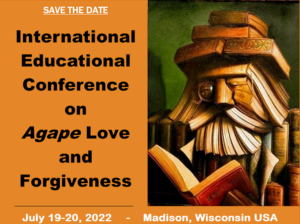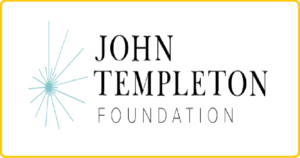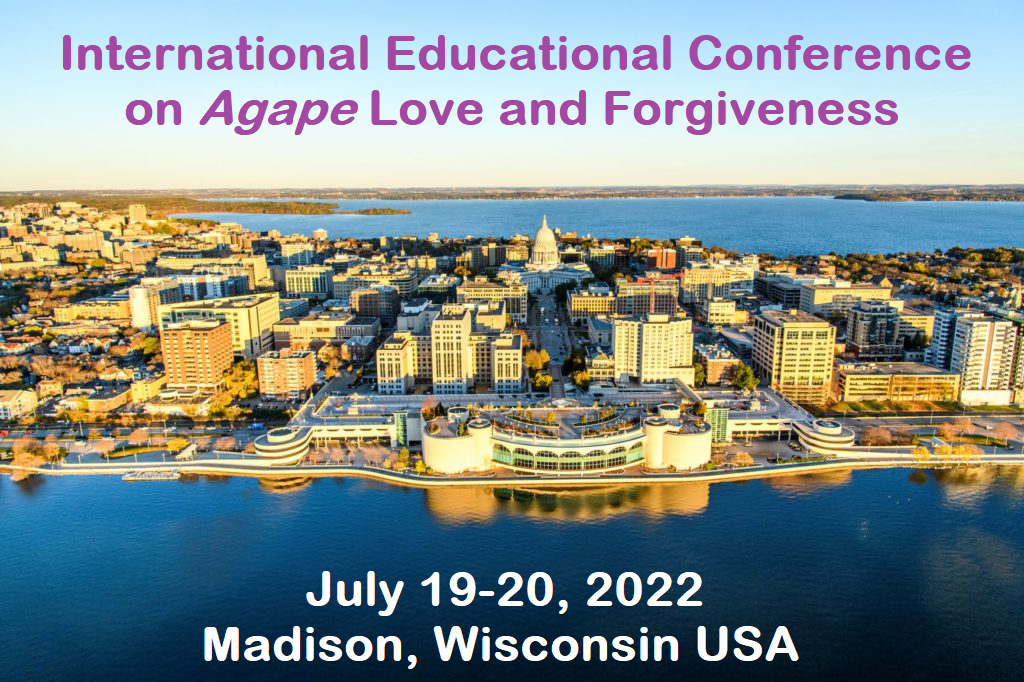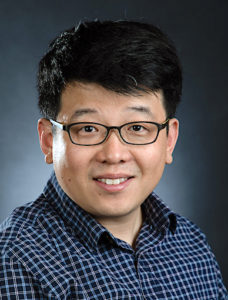Tagged: “forgiveness research”
Forgiveness Education for Students in Nursing Program Helps Reduce Anxiety and Depression
A research study published last month, utilizing Dr. Robert Enright’s forgiveness intervention model, showed that students in college nursing programs would benefit from a forgiveness intervention in the areas of self-care and forgiveness facilitation.
The nursing students, randomly assigned to either an experimental group or a no-contact control group, used Dr. Enright’s book 8 Keys to Forgiveness as the project’s treatment manual. After studying one chapter a week for 8 weeks, the students in the experimental group showed greater improvement in forgiveness compared to those in the control group from the pretest to the posttest which was maintained at the four-week follow-up. In addition, those in the experimental group showed statistically significant decreases in anxiety, depression, and fatigue from pre-testing to both post-testing and follow-up testing periods.
The study was conducted by a team of 8 researchers from the Liberty University School of Nursing (Lynchburg, VA) under the direction of Jichan J. Kim, Associate Professor of Psychology at Liberty. Dr. Kim has been the lead investigator on more than a dozen forgiveness-related studies over the past several years.
This latest study, The Efficacy of a Forgiveness Bibliotherapy: A Randomized Controlled Trial with Nursing Students, was published in the Journal of Holistic Nursing (JHN) on Jan. 10, 2022. JHN is a peer-reviewed quarterly journal with a focus on advancing the science and practice of holistic nursing and healthcare.
“The need for forgiveness education for nursing students has risen dramatically as responsibilities have broadened for nursing professionals,” according to Dr. Kim. “Our study positively demonstrated that the use of bibliotherapy can be a cost-effective way to promote the virtue of forgiveness for nursing students who are likely to be in need of exercising self-care and would have opportunities to facilitate forgiveness for their patients.”
Bibliotherapy, Dr. Kim explained, is a therapeutic approach that uses literature (in this case Dr. Enright’s 8 Keys to Forgiveness) to support good mental health. This study, he added, demonstrated not only the effects of forgiveness, as numerous studies have done in the past, but also the feasibility of using a forgiveness bibliotherapy that can be easily adopted into the existing nursing curriculum.
That same approach has been used by Dr. Enright, co-founder of the International Forgiveness Institute (IFI) and the man Time magazine calls “the forgiveness trailblazer,” in a slightly different format over the past two years. Dr. Enright has worked with Dr. Chontay Taylor Glenn, PhD, RN, PMHNP-BC, to enroll a total of eight University of Michigan-Flint nursing students in the IFI’s Forgiveness Therapy training course.
Dr. Glenn is Assistant Professor & Project Director of the Psychiatric Mental Health Nurse Practitioner Residency Program at UM-Flint. In addition to incorporating the IFI’s forgiveness training into the curricula for her nursing students, she also developed a program through which nine Flint-area community counselors completed the Forgiveness Therapy online continuing education course. Dr. Kim provided three hour-long training sessions by Zoom as part of that collaborative effort between Dr. Glenn, Dr. Enright, and himself.
The newly trained counselors in Flint are also undertaking an expanded role in their community, according to Dr. Glenn–providing forgiveness education classes and case coordination to Flint-area adolescents who have experienced adverse childhood experiences. The project is funded by a grant from the W.K. Kellogg Foundation in Battle Creek, MI.
About Dr. Kim
Jichan J. Kim is an Associate Professor of Psychology and the Director of the M.A. in Applied Psychology program at Liberty University, Lynchburg, VA. His research interests include the effects of interpersonal and intrapersonal forgiveness as well as the integration of psychology and Christianity.
Dr. Kim has degrees from the University of Wisconsin-Madison (M.S. & Ph.D.), Harvard University (Ed.M.), Gordon-Conwell Theological Seminary (M.Div. & M.A.), and City College of New York (B.A.). He also has extensive ministry experience in New York City, Boston, and Madison (WI), serving various age groups in Korean immigrant congregations.
Learn More:
- Nursing Students Research Report Abstract
- Bibliotherapy Defined
- Overview of the IFI’s Forgiveness Therapy Course
Shedding Light on “The Dark Side of Forgiveness”
On December 16 this year, I had an interview with Justin Ballis, writer for the London-based magazine, What the Doctors Don’t Tell You, that aims to provide evidence-based holistic solutions to illness. Mr. Ballis was one of the most informed interviewers on the topic of forgiveness whom I have ever encountered. The interview covered an impressively wide range of topics on forgiveness, one of which centered on criticisms leveled against the practice of forgiving those who hurt us. In his researching the skeptical views, Mr. Ballis came across a journal article on “the dark side of forgiveness” by Dr. James K. McNulty:
McNulty, J.K. (2011). The dark side of forgiveness: The tendency to forgive predicts continued psychological and physical aggression in marriage. Personality and Social Psychology Bulletin, 37, 770-783.
This discussion with Mr. Ballis got me thinking: If well-informed journalists are aware of Dr. McNulty’s article, then it is important to have a thoroughgoing critique of that work, which is flawed in many ways. So, with this in mind, here is an excerpt (chapter 14) from my book with Dr. Richard Fitzgibbons, Forgiveness Therapy (American Psychological Association, 2015), in which we examine the science behind this work:
McNulty (2011) claimed to have found scientific support for the view that forgiving within marriage perpetuates injustice. Seventy-two first-married couples took part in a survey in which they responded to hypothetical situations regarding forgiveness. For example, one of the partners asks the other to mail a very important package which the other partner then forgets to do. On a 1-to-7 scale, the respondent reports the degree of forgiveness that he or she would offer to the forgetful spouse. We have four criticisms of the study’s conclusions: a) The questionnaire was very short (five items); b) the questions were all hypothetical and not actual situations in the marriage; c) only one of the hypothetical scenarios is actually serious (an alleged affair), and d) the questionnaire simply asks the participant if he/she would forgive without ever defining the term. The forgetful spouse who failed to mail the package did not act with intent to harm. The one choosing to have an affair did. In other words, some respondents may be confusing genuine forgiveness with excusing or “letting go.” This is a serious flaw to the work (failing to distinguish related but quite different terms) that could have been overcome by asking people what they mean when they use the word forgiveness. The findings could reflect this: Those who score high on this scale are doing the most excusing or condoning, which could make them vulnerable to further abuse. In other words, those who excuse may not seek a proper justice solution upon “forgiving.”
So, there is our critique. My conclusion? It is this: If there is a “dark side” to forgiveness, the above study is not the one to show it.
Robert
Is there any research in which parents taught forgiveness education to their children?
Yes, here is the reference to a successful forgiveness education program in Northern Ireland in which parents taught forgiveness education to their children:
Magnuson, C. M., Enright, R. D., Fulmer, B., & Magnuson, K. A. (2009). Waging Peace in Belfast-IV Journal of Research in Education, 19, 57-65.
I am wondering if there is any scientific evidence showing that forgiveness education might increase academic achievement.
Yes, there is scientific evidence specifically concerning adolescents who are at-risk for academic failure. In the first study below, the students went from a D+ average to a C+ average. The second study was done in South Korea. Some of the participants were in a correctional institution.
Gambaro, M.E., Enright, R.D., Baskin, T.A., & Klatt, J. (2008). Can school-based forgiveness counseling improve conduct and academic achievement in academically at-risk adolescents? Journal of Research in Education, 18, 16-27.
Park, J.H., Enright, R.D., Essex, M.J., Zahn-Waxler, C., & Klatt, J.S. (2013). Forgiveness intervention for female South Korean adolescent aggressive victims. Journal of Applied Developmental Psychology, 20, 393-402.
JOIN US! International Educational Conference on Agape Love and Forgiveness
A research project focusing on agape love and forgiveness, now underway in three culturally distinct areas of the world, will culminate next summer with an international educational conference to be held in Madison, Wisconsin. The conference will be hosted by the International Forgiveness Institute (IFI)—the nonprofit organization founded in Madison 27 years ago. The research is being conducted by researchers at the University of Wisconsin-Madison.
distinct areas of the world, will culminate next summer with an international educational conference to be held in Madison, Wisconsin. The conference will be hosted by the International Forgiveness Institute (IFI)—the nonprofit organization founded in Madison 27 years ago. The research is being conducted by researchers at the University of Wisconsin-Madison.
Working with elementary school children in Northern Ireland, Israel (both Arabic- and Hebrew-speaking schools), and Taiwan, the research is being funded by the John Templeton Foundation which has been supporting research on forgiveness for more than 20 years. The Foundation’s p rimary goal is “to ignite a global conversation on forgiveness to help everyone experience its benefits and to increase the visibility and funding of forgiveness innovations.”
rimary goal is “to ignite a global conversation on forgiveness to help everyone experience its benefits and to increase the visibility and funding of forgiveness innovations.”
The 3-year project was developed by and is being conducted under the direction of Dr. Robert Enright, co-founder of the IFI and a professor of educational psychology at the University of Wisconsin-Madison. Its principal focus is on incorporating agape love fundamentals with Dr. Enright’s Forgiveness Curriculum materials for 5th grade students.
“Agape love is drawn from Greek tradition and is the highest expression of forgiveness toward those who caused pain,” Dr. Enright explains. “I call it the ultimate form of love—the kind of love that has never before been scientifically examined as part of forgiveness research.”
 The research portion of the agape love and forgiveness education project will continue through most of this school year with 60 teachers and up to 1,200 students at the experimental sites. Some of those educators will outline their experiences and present their findings during the July 19-20, 2022 International Educational Conference on Agape Love and Forgiveness at the University of Wisconsin-Madison campus.
The research portion of the agape love and forgiveness education project will continue through most of this school year with 60 teachers and up to 1,200 students at the experimental sites. Some of those educators will outline their experiences and present their findings during the July 19-20, 2022 International Educational Conference on Agape Love and Forgiveness at the University of Wisconsin-Madison campus.
A new website that was created specifically for this Templeton Foundation project was recently launched with an abundance of information about agape love, forgiveness education, and the Conference. The website will serve as an ongoing platform where educators can access curricula and other teaching resources. It will also house all Conference presentations and education materials developed through the project. Visit the website: Agape Love and Forgiveness.
- Learn what agape love is and what makes it unique: Agape Love.
- Learn about the amazing benefits of Forgiveness Education.





